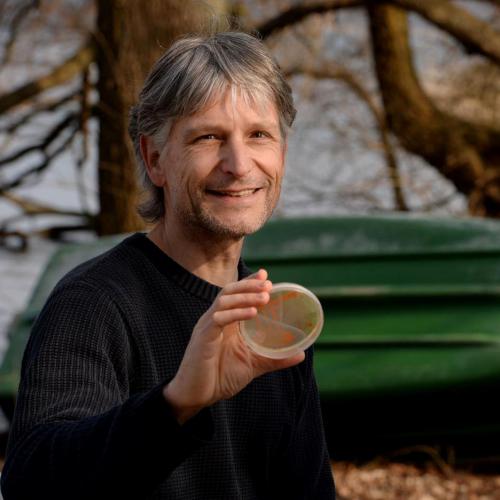Using exoelectrogenic microorganisms that make electricity to power our water infrastructure, and understanding climate change from the perspective of our daily energy use
Certain microorganisms have the amazing ability to generate an electrical current directly from the oxidation of organic matter. When the generation of an electrical current on a conductive anode is combined with oxygen reduction at the cathode (using air), it is possible to produce electricity that can be harvested in devices called microbial fuel cells (MFCs). I will summarize the types of microorganisms able to produce electricity and examine advances in MFCs that have reached the highest ever power densities. Will this be enough to power our water infrastructure, and how much energy would we need? In the second part of this talk, I look at climate change from the perspective of our daily energy use and carbon emissions, and examine the extent that our own choices in energy use impact carbon emissions. How can we, as a global community, get to the point where greenhouse gases are reduced to the minimum needed to avoid severe climate change?
IGB Colloquia open up!
IGB strives to facilitate and accelerate the exchange of knowledge and ideas within and also outside of IGB. One element contributing to inter- and transdisciplinary exchange, and more (scientific) cooperation and innovation, is to open up IGB Colloquia to an interested external audience from science (other research institutes, universities, laboratories) as well as practice (i.e. conservationists, freshwater/land-use managers, authorities, associations). If you would like to join this IGB Colloquium as a guest, we ask you to register until the morning of the colloquium 10 o'clock the latest. After we have checked your registration, you will receive the participation link.


